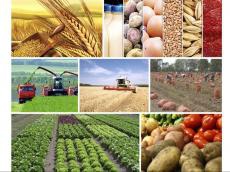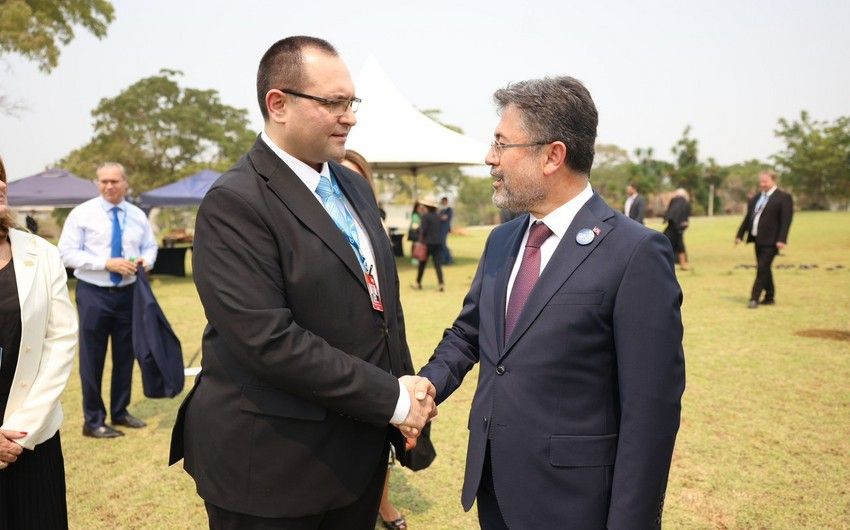|
|
TODAY.AZ / Analytics
Steady growth in Azerbaijan's agricultural sector: Implications for future development
16 September 2024 [16:37] - TODAY.AZ

In Azerbaijan's long-term strategy for developing its non-oil sector, the development of an agro-industrial cluster in Azerbaijan seems to be a vital direction.
To provide some context in the first eight months of this year, Azerbaijan’s agricultural sector was able, though modestly so, to show some upward trends and appreciable performance. The overall output value was 8.723 billion manats, which also indicates a positive shift of only 1 percent compared to a similar time frame last year’s output. This development is also a sign of growth and stability in the said field, despite the marginal growth of the entire world’s economy. Specifically, their gross output of cropped products amounted to only 4.528 billion manats, which was a 0.3 percent change over last year’s corresponding period. As for the values associated with livestock products, they also became more significant and constituted this time 4.195 billion manats, which is 1.3 percent higher than last year’s output. This differential growth shows that the growth in livestock output was much better than that of the meat output. This could be due to several reasons, perhaps an improvement in the breeding technology or hence high demand for livestock.
Azerbaijan is actively pursuing internal agricultural growth while forging strategic foreign relations to further enhance its agricultural sphere. In recent developments, Azerbaijan has initiated discussions with influential countries such as Turkiye, Italy, Argentina, Uruguay, and Saudi Arabia to explore collaborations in agricultural research and development. These discussions were held as part of bilateral meetings with G20 Agriculture Ministers.
During the held meeting Minister of Agriculture Majnun Mammadov, highlighted the significance of these discussions. The meetings provided a platform for evaluating the current state of cooperation, exploring future trade opportunities, and identifying prospects for collaborative scientific research. This international engagement reflects Azerbaijan's strategic intent to leverage global expertise and technology to advance its agricultural capabilities.

The emphasis on scientific collaboration is of particular significance. By fostering partnerships with nations renowned for their agricultural innovation, Azerbaijan endeavours to assimilate state-of-the-art research and best practices into its agricultural framework. This approach not only endeavours to augment productivity and sustainability within the sector but also aims to position Azerbaijan as a fundamental player in global agricultural research and development.
Moreover, these international alliances have the potential to engender amplified trade turnover, affording Azerbaijan access to novel markets and export opportunities. The expansion of trade partnerships and research collaborations is anticipated to make a substantive contribution to the sector’s expansion and competitiveness on a global scale.
Ultimately, Azerbaijan’s agricultural sector is undergoing consistent growth, underpinned by deliberate international partnerships and a dedication to scientific collaboration. These endeavours are poised to fortify the sector’s productivity, unlock new market prospects, and cement Azerbaijan's standing in the global agricultural domain.
As COP29 approaches, Azerbaijan is also preparing to showcase its progress in the agricultural and industrial sectors at the upcoming 29th session of the Conference of the Parties (COP29) to the UN Framework Convention on Climate Change. The conference will serve as a significant opportunity for Azerbaijan to engage with global stakeholders, share its achievements, and contribute to the collective effort to combat climate change. The event is scheduled to take place in Baku this November.
URL: http://www.today.az/news/analytics/252981.html
 Print version
Print version
Connect with us. Get latest news and updates.
See Also
- 07 November 2024 [20:45]
From press to politics or sympathy to hatred: Gallup's downbeat survey on Pashinyan's rating - 01 November 2024 [11:05]
Sustainable development is one of goals of COP29 - 31 October 2024 [13:50]
New trains, green lanes: Azerbaijan's journey to COP29 readiness - 28 October 2024 [17:10]
Lukewarm wishes from Yerevan - How sincere is Pashinyan in congratulating his Georgian counterpart? - 25 October 2024 [09:00]
Azerbaijan expands IFC partnership to enhance energy efficiency and sustainable development - 24 October 2024 [16:54]
Georgia under Western pressure - 23 October 2024 [13:28]
Azerbaijan becomes leader of Central Asia-Europe energy corridor - 23 October 2024 [08:30]
SOCAR's sustainable initiatives ahead of COP29: Paving way for carbon-neutral future - 22 October 2024 [19:57]
Islamophobia in France – Policy continuing since 20th century - 22 October 2024 [08:30]
Azerbaijan makes headway with loan projects boosting reconstruction in liberated areas
Most Popular
 Yerevan fails to recognize the importance of listening to Azerbaijan
Yerevan fails to recognize the importance of listening to Azerbaijan
 Dashnaks Influencing the European Parliament and Threatening EU Leadership
Dashnaks Influencing the European Parliament and Threatening EU Leadership
 Armenia sends resumed package of peace proposals to Azerbaijan
Armenia sends resumed package of peace proposals to Azerbaijan
 Donald Trump's victory, Macron's hypocrisy and President Ilham Aliyev's indisputable arguments
Donald Trump's victory, Macron's hypocrisy and President Ilham Aliyev's indisputable arguments
 Europe slammed its doors on Armenia
Europe slammed its doors on Armenia
 “Chinghiz Aitmatov” Order bestowed upon President Ilham Aliyev in Bishkek [PHOTOS]
“Chinghiz Aitmatov” Order bestowed upon President Ilham Aliyev in Bishkek [PHOTOS]
 Azerbaijani carpet expert awarded in South Korea
Azerbaijani carpet expert awarded in South Korea
